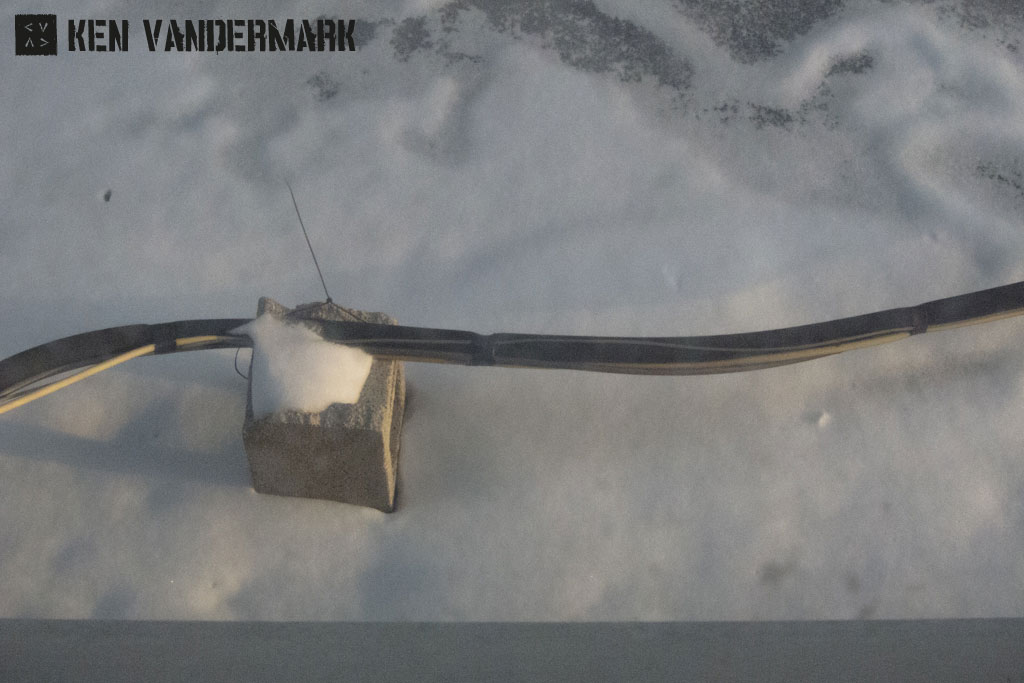

MADE TO BREAK TOUR PT.2
“In art, if it doesn’t get better, it usually gets worse.”
-David Sylvester, from Looking at Giacometti, (Henry Holt and Company: 1996), by David Sylvester, pg. 117.
4/23/14: After breakfast at my folks’ home in Framingham, MA, the group drove the four hours to Nate Wooley’s place in Jersey City. The evening’s travel plan- leave the tour van in the parking garage at the PATH station in Journal Square so we could spend the afternoon relaxing at Nate’s, rather than driving a 15 passenger van filled with equipment into Manhattan during rush hour and then trying to find a place to park it close enough to Le Poussin Rouge so we could load in all our equipment for the gig. Luckily, the club had it’s own complete backline so we were able to use their drums, amps, etc. As we pulled into his neighborhood, Nate told a great story about how he had been selected for jury duty right before he was scheduled to go out on tour in the U.S. to play in Chicago and elsewhere in the Midwest. He reported to the courthouse hoping he would be passed over being selected so the tour would be possible. A heavy set African American woman was the judge for the case and when she arrived for the jury selection process she told everyone that the trial would have to be delayed for a couple of days because she had a family event to attend. Because she felt responsible for the change in dates for the trial, she allowed all of the people selected for jury duty to come forward and explain if the delay in the court proceedings would make it impossible for them to participate- if she agreed with the issue they presented they’d be allowed to go, otherwise they’d be expected to remain available until the selection process was held two days later. People came forward one at a time to describe why the importance of their schedule should enable them be bypassed for selection. No one was given a pass, doctors, CEOs, lawyers. When Nate came forward he explained to the judge that he needed to be exempt because he was about to go out on tour and it would not only affect his livelihood but also that of the other musicians involved. “I see. What kind of music do you play?” she asked. Nate replied, “Um, I guess you could say jazz.” “Oh, jazz- do you know Fred Anderson?” Nate was understandably surprised that she knew who Fred was. “Well, I know of him and think his music is fantastic; I’m actually supposed to play in Chicago on the tour.” “Well I love Fred Anderson! You’re free to go.”
After a nice afternoon listening to Nate’s record collection and having a fantastic home cooked meal, everyone got their instruments out of the van and we went to the club, taking the PATH train into New York and walking several blocks from the 9th Street stop to Le Poussin Rouge. Setup and soundcheck went really well, the soundperson was one of the original staff who worked at Tonic, she was excellent at her job and great to work with again. The timetable was tight: load in at 9:15pm, soundcheck at 9:30, doors at 10, Nate Wooley solo at 10:30 followed by Made To Break. We got situated and had the stage and venue mix done within a half hour, and things sounded really good, everyone at the club friendly and helpful, really welcoming. It was my first club date as a leader in New York in years, and the reception by the people working at Le Poussin Rouge was really gratifying.
Nate played another superb solo set, again different, again focused, methodical, with absolute intensity and exceptional use of means. There was a good turn out for the double bill (unfortunately, the last time Nate would play with us on the tour), and though I was worn down from the schedule (as is usually the case) I was feeling good and had high expectations for a strong show. Everyone in the group played with conviction and energy, but it felt to me that the ensemble was at cross purposes at times, and one of the fundamental principles of the music- to reduce the conventional hierarchies that often exist in improvised music: rhythm section and soloist, theme and improvisation, set forms and arrangements- was lost. This was made clear to me because for the first time on the tour I felt like “the saxophone player” in the group, which is absolutely against the idea of the music we play together in MTB. I do think that the nature of the music came across, and I got good feedback from listeners whose opinions I respect, like Kevin Reilly. Even so, this was the most disappointing concert for me on the tour so far. To add insult to injury, the group sold only one cd at the show, maybe the worst sales I’ve ever had at a concert.
I’ve learned from experience to say as little as possible about a performance right afterward if I’m not happy with it, so I kept quiet about my frustrations and planned to discuss the music the following day at the soundcheck in Vienna, VA. I shared a room with Jasper and we stayed up late talking, ending the discussion on a discouraging note. Jasper told me that at the end of his life, Willem Breuker was declined for subsidy funds for the Kollektief, which he had run for decades, by the very system he had helped create with musicians like Misha Mengelberg and Han Bennink years and years before. To make this rejection even more disrespectful, he was turned down because his music was considered “no longer relevant.”
© 2024 Ken Vandermark – musician & composer | Disclaimer